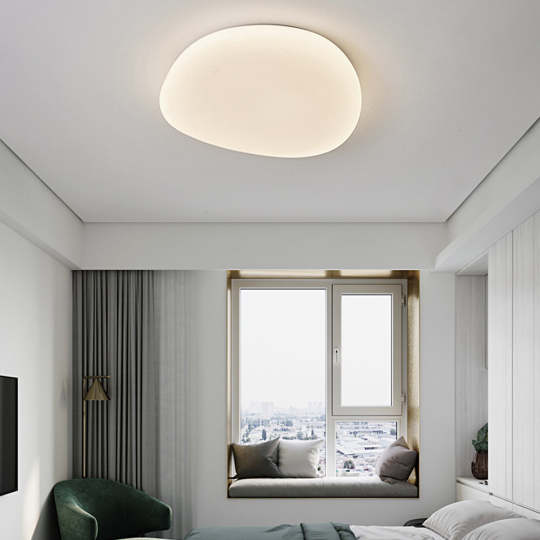Transform Your Living Room: Discover the Ultimate Ceiling Light Secrets!
Ceiling lights play a pivotal role in enhancing both the aesthetics and functionality of your living room. They not only illuminate the space but also set the tone for the overall ambiance, making it a welcoming haven for family and guests alike. When selecting ceiling lights, there are several aspects to consider—style, brightness, and energy efficiency are paramount. The right choice can dramatically transform your living area, turning it from a mundane space into a stylish and inviting retreat. In this guide, we will explore how to choose the best ceiling lights that not only reflect your taste but also elevate your living room’s design.

Understanding Different Styles of Ceiling Lights
The world of ceiling lights is diverse, offering a myriad of styles to fit every taste and decor. From modern to traditional, industrial to minimalist, each style brings its unique flair to the living room. Modern ceiling lights often feature sleek lines and innovative designs, making them perfect for contemporary spaces. Traditional styles, with their ornate details and classic finishes, can add a touch of elegance and warmth. On the other hand, industrial designs, which often incorporate raw materials like metal and wood, evoke a trendy, urban feel. Minimalist ceiling lights focus on simplicity and functionality, ideal for those who prefer a clean and uncluttered space. Choosing a style that complements your existing decor is crucial; for instance, a striking chandelier can serve as a focal point in a traditionally styled room, while a geometric pendant light can enhance the modern aesthetic. Remember, the key is to harmonize the ceiling light with your overall design theme to create a cohesive look.
Brightness and Its Impact on Ambiance
Brightness is another critical factor that affects the mood and functionality of your living room. The level of brightness, typically measured in lumens, can significantly influence how the space feels and how well it serves various purposes. For instance, brighter lights can energize the room, making it suitable for social gatherings or activities, while softer, dimmed lighting can create an intimate atmosphere for relaxation or movie nights. Different types of bulbs offer varying brightness levels and color temperatures. Warm light bulbs, which emit a soft, yellowish glow, are often favored for living spaces, as they create a cozy and inviting environment. In contrast, cool light bulbs, which produce a bluish tint, are better suited for task lighting or areas where clarity and focus are needed. When selecting ceiling lights, consider the intended use of the space and choose bulbs that provide the right balance of brightness and warmth to set the desired ambiance.
Energy Efficiency and Sustainability
In today’s eco-conscious world, energy efficiency is more important than ever. Opting for energy-efficient lighting options, such as LED and CFL bulbs, not only contributes to sustainability but also offers significant cost savings on your electricity bills. These bulbs consume less energy than traditional incandescent lighting and have a longer lifespan, reducing the frequency of replacements. When choosing energy-efficient ceiling lights, look for options that are labeled as such and consider their lumens per watt ratio—this will give you an idea of their efficiency. You can also explore smart lighting solutions that allow you to control the brightness and color temperature through your smartphone or voice assistant, making it easier to optimize energy usage. By prioritizing energy efficiency, you can enjoy stylish lighting that’s kind to both your wallet and the planet.
Installation and Placement Tips
The installation and placement of your ceiling lights can greatly affect light distribution and overall aesthetic appeal. When installing, consider the height of your ceilings; generally, the bottom of the light fixture should be at least seven feet above the floor to ensure adequate clearance. Centering your ceiling lights over seating areas or focal points in the room can enhance both functionality and design. Layering your ceiling lights with other light sources, such as floor lamps or wall sconces, can also improve the ambiance and create a more dynamic lighting scheme. Think about the different activities that will take place in the living room, and position your lights accordingly to maximize efficiency and comfort. A well-planned lighting layout not only brightens the space but can also create visual interest, making your living room a true reflection of your style.
Elevating Your Living Room with the Right Ceiling Lights
In conclusion, selecting the right ceiling lights for your living room involves careful consideration of style, brightness, and energy efficiency. Each of these aspects plays a vital role in creating a space that is both functional and aesthetically pleasing. By understanding the different styles available, the impact of brightness on mood, and the benefits of energy-efficient options, you can make informed choices that transform your living area into a welcoming and stylish environment. Explore your options, and remember that thoughtful lighting can significantly enhance your living room's atmosphere, making it a cherished space for years to come.






Comments